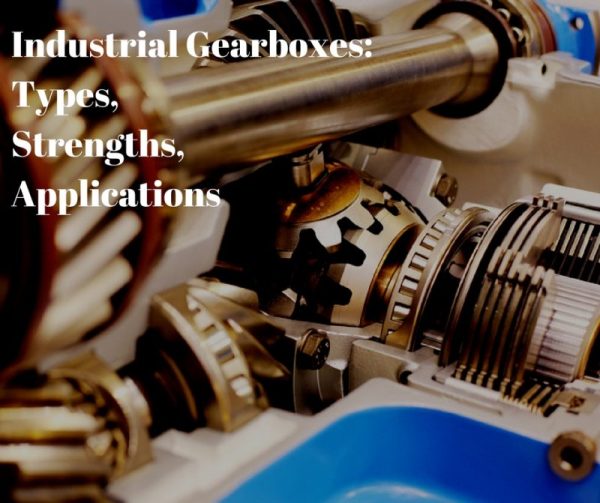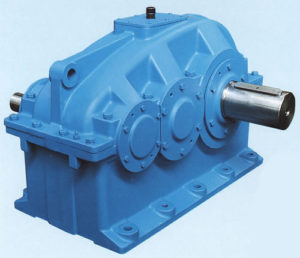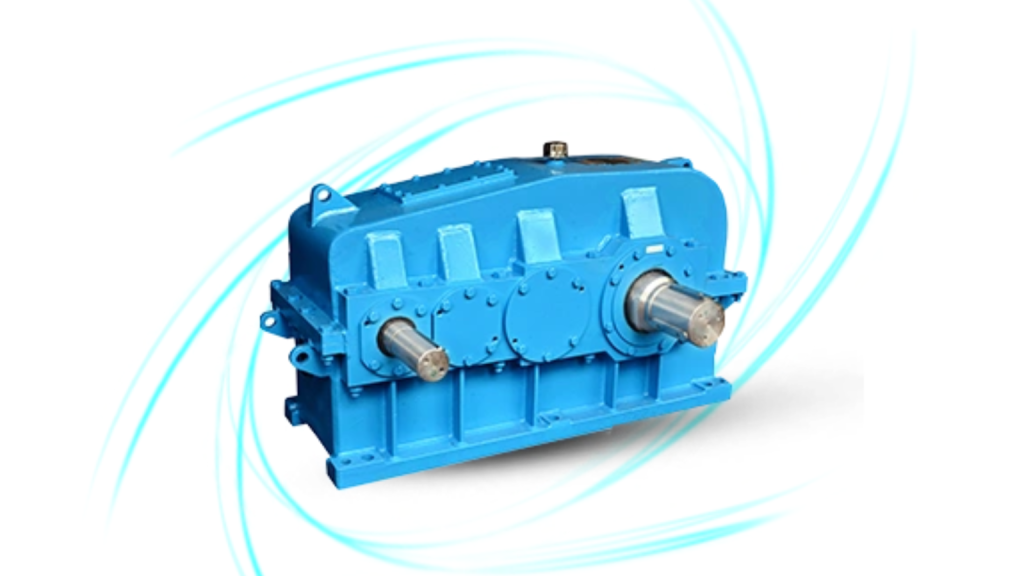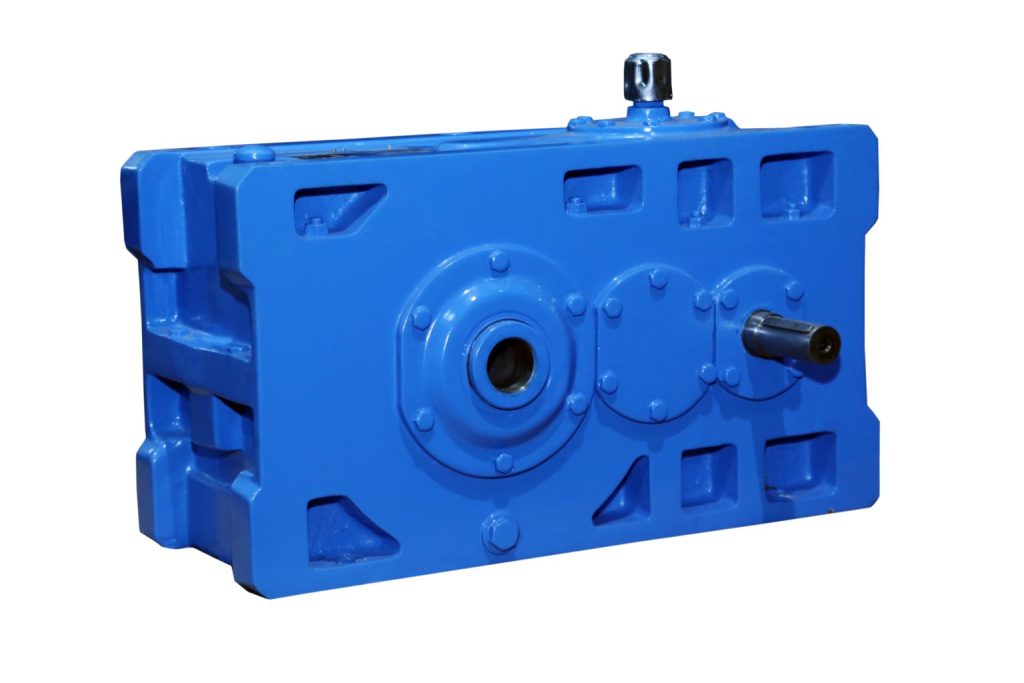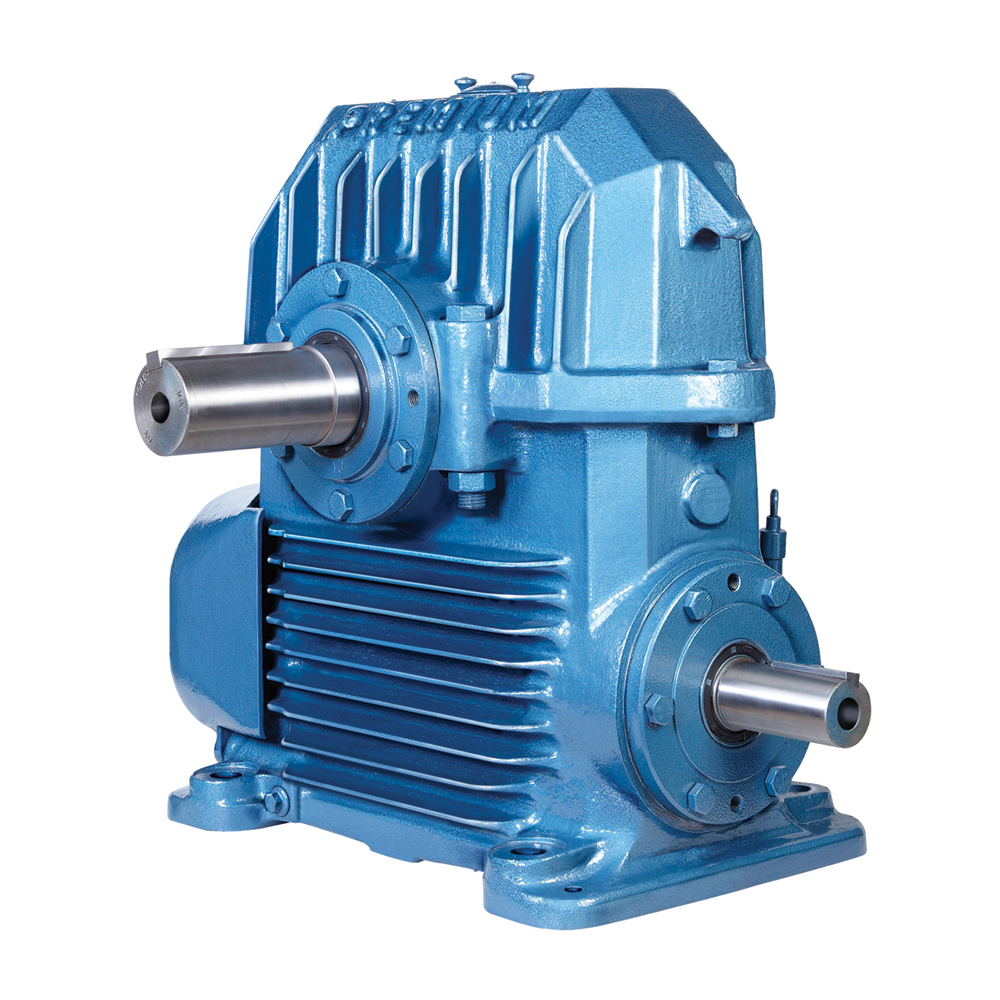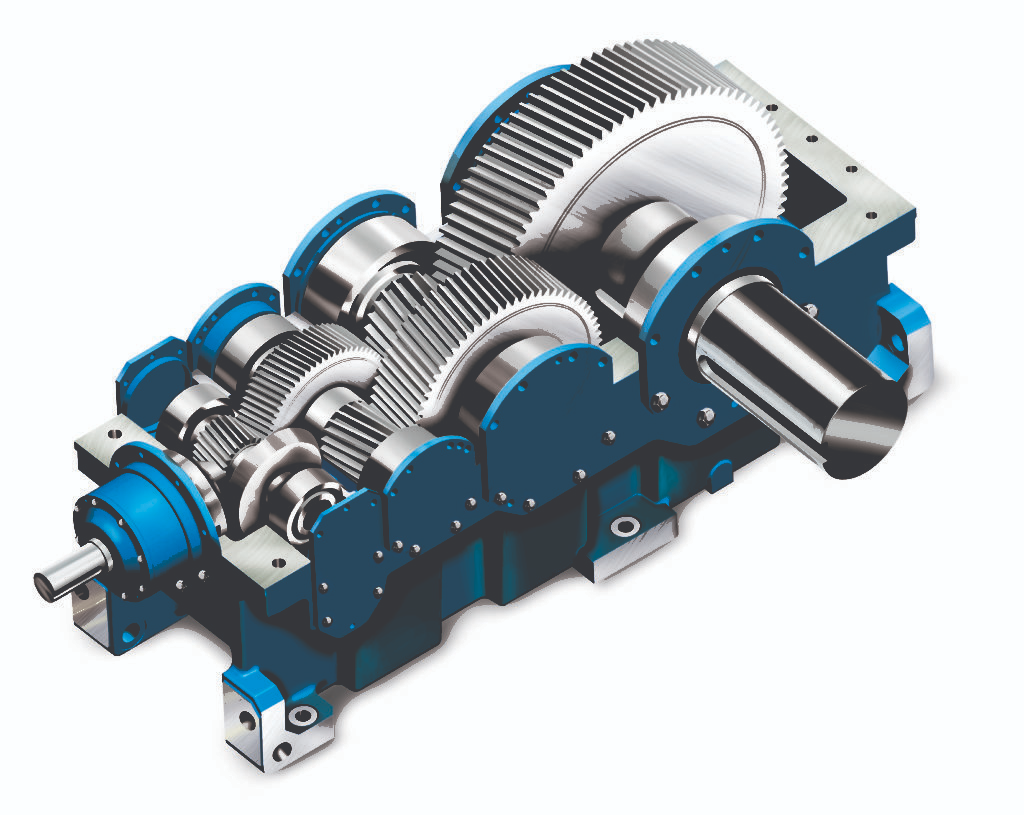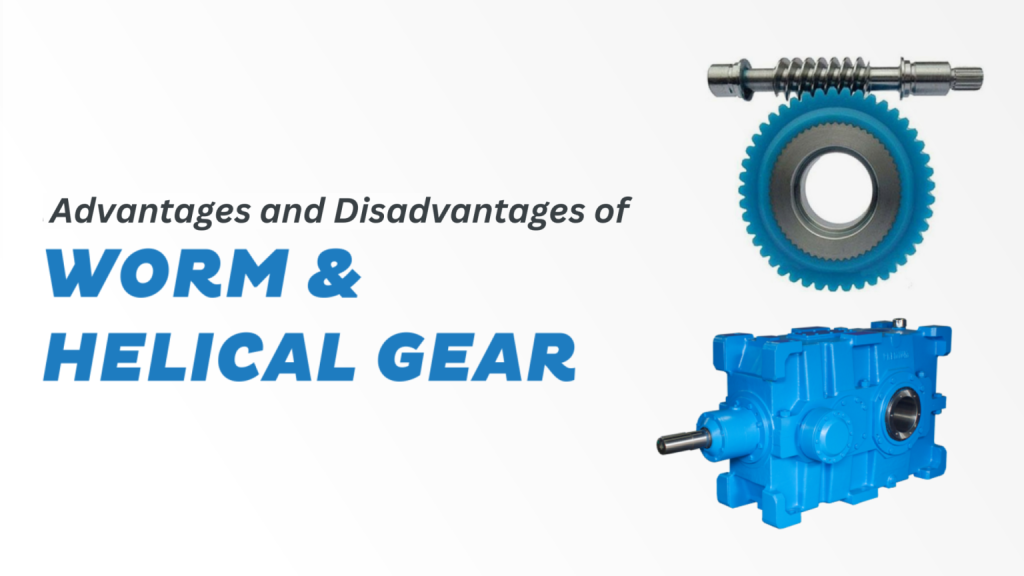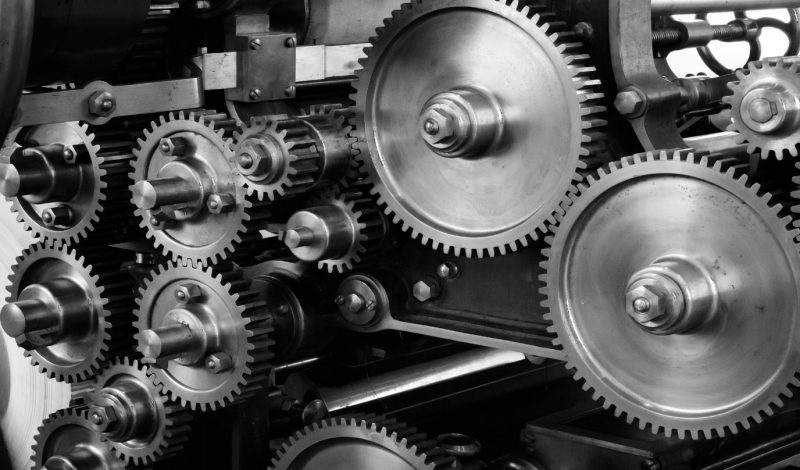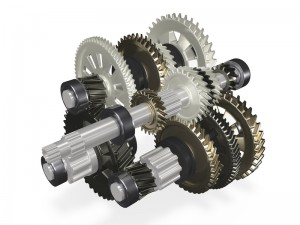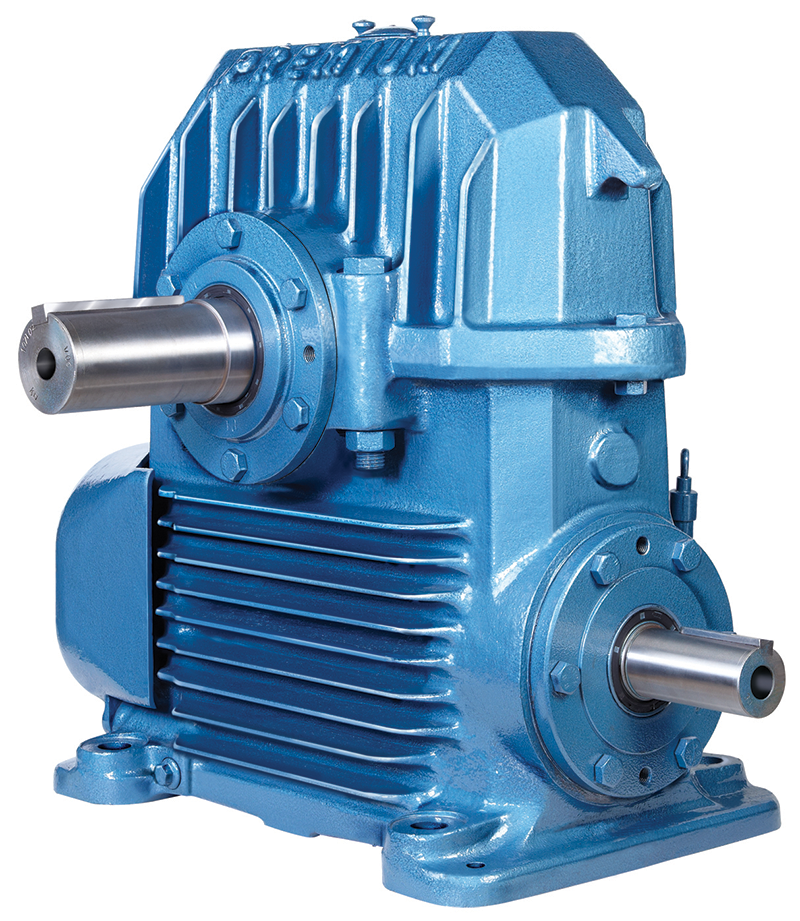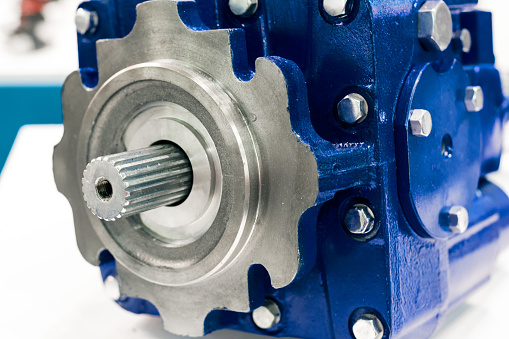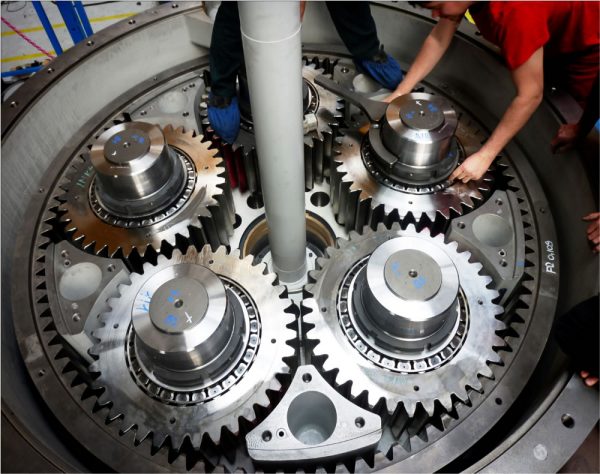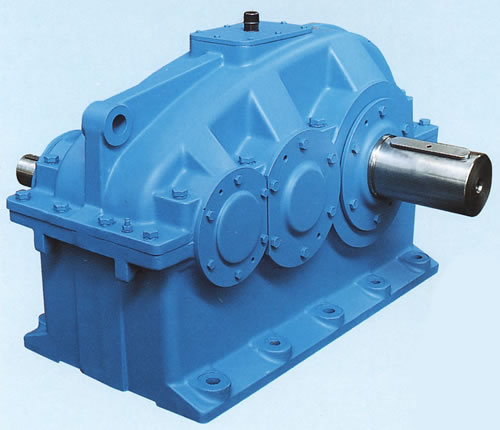Gearboxes are crucial in many industrial applications, as they transmit power from a motor to a driven machine or equipment. Gearboxes are often called the “workhorse” of many industries as they play a critical role in ensuring the smooth and efficient operation of various machines and equipment.
However, not all gearboxes are created equal, and choosing the proper gearbox manufacturer can make all the difference in your machinery’s performance, reliability, and longevity. The importance of choosing the right gearbox manufacturer cannot be overstated, as it can significantly impact your bottom line. A gearbox that is poorly designed, constructed, or maintained can lead to increased downtime, decreased productivity, and higher maintenance and repair costs. On the other hand, a high-quality gearbox built to last and designed to meet your specific needs can provide you with a competitive edge and help you achieve your business goals.
This blog post aims to provide readers with valuable insights on selecting the best gearbox manufacturer for their industry needs. We will discuss the key factors to consider when choosing a gearbox manufacturer, such as their experience, expertise, reputation, and track record of delivering high-quality products and services. We will also highlight some benefits of working with a reputable gearbox manufacturer and the potential risks of choosing a subpar one.
At Santram Engineers, we understand the importance of choosing the right gearbox manufacturer for your industry needs. As a leading supplier of industrial products, including pumps, valves, motors, and gearboxes, we have been providing our customers with high-quality products and services for over three decades. Our team of experienced and knowledgeable engineers and technicians can help you find the right gearbox solution for your specific application, whether you need a standard or custom-designed one.
Let us delve deeper into the factors you should consider when selecting a gearbox manufacturer. We will provide you with practical tips and advice on evaluating gearbox manufacturers and making an informed decision that meets your specific needs and requirements. We will also share some real-life examples of how choosing the right gearbox manufacturer has helped our customers improve their operations, increase efficiency, and reduce costs.
Types of Gearboxes
When selecting the right gearbox for your industry needs, it’s essential to understand the different types of gearboxes available in the market. Each type of gearbox has its own set of advantages and disadvantages, and choosing the right one can make all the difference in the performance and efficiency of your machinery.
Here, we’ll discuss the most common types of gearboxes used in industrial applications and their respective benefits and drawbacks.
1. Helical Gearboxes
Helical gearboxes are the most common type of gearbox used in industrial applications. They have a set of helical gears that transmit power between the input and output shafts. The teeth on the gears are cut at an angle, creating a smooth, quiet operation compared to other gearboxes. Helical gearboxes are also known for their high efficiency and ability to handle high loads.
The benefits of helical gearboxes include their ability to provide high torque transmission and efficient power transfer. They can also operate at high speeds, making them ideal for high-speed applications. However, one drawback of helical gearboxes is their higher cost than other gearboxes due to their complex design.
2. Bevel Gearboxes
Bevel gearboxes are used in applications where the input and output shafts are perpendicular. They have a set of bevel gears that transmit power between the two shafts. The teeth on the gears are cut at an angle, which allows for smooth operation even at high speeds.
The benefits of bevel gearboxes include their ability to handle high torque and provide high efficiency. They are also compact and can be used in tight spaces where other types of gearboxes may not fit. However, one drawback of bevel gearboxes is their higher cost than other gearboxes due to their complex design.
3. Worm Gearboxes
Worm gearboxes consist of a worm and worm wheel that transmits power between the input and output shafts. The teeth on the worm are cut at an angle, which engages the teeth on the worm wheel and transmits power. Worm gearboxes are known for handling high shock loads and providing a high reduction ratio.
The benefits of worm gearboxes include their ability to provide high reduction ratios and handle high shock loads. They are also relatively inexpensive compared to other types of gearboxes. However, one drawback of worm gearboxes is their lower efficiency than other gearboxes, which can result in increased energy consumption.
4. Planetary Gearboxes
Planetary gearboxes consist of a set of gears that are arranged in a planetary configuration. They have sun gear in the center, which is surrounded by planet gears and ring gear. Power is transmitted between the input and output shafts through the planet gears. Planetary gearboxes are known for handling high torque and providing a high reduction ratio.
The benefits of planetary gearboxes include their ability to provide high reduction ratios, handle high torque, and operate at high speeds. They are also compact and can be used in tight spaces. However, one drawback of planetary gearboxes is their higher cost than other gearboxes due to their complex design.
Factors to Consider When Selecting a Gearbox Manufacturer
Choosing the right gearbox manufacturer is crucial for businesses in any industry. The gearbox is a critical component in any machinery, and its reliability and performance can impact a business’s productivity, efficiency, and bottom line. When selecting a gearbox manufacturer, there are several important factors to consider.
1. Quality
Quality is one of the most critical factors to consider when selecting a gearbox manufacturer. High-quality gearboxes are essential for reliable and efficient operation, reducing the risk of breakdowns and downtime. A reputable gearbox manufacturer should use high-quality materials, advanced manufacturing processes, and rigorous quality control measures to ensure that their products meet the highest quality standards.
2. Reliability
Reliability is another critical factor to consider when selecting a gearbox manufacturer. A reliable gearbox manufacturer should have a proven track record of delivering high-quality and reliable products that meet the specific needs of their customers. They should also offer warranties and after-sales support to ensure that their customers can rely on their products long-term.
3. Customer service
Customer service is another essential factor to consider when selecting a gearbox manufacturer. A manufacturer that offers excellent customer service can help businesses save time and money by providing prompt and efficient support for their gearbox needs. A manufacturer should have a team of knowledgeable and experienced engineers who can provide technical support, installation guidance, and troubleshooting assistance whenever needed.
4. Expertise
Expertise is another critical factor to consider when selecting a gearbox manufacturer. A manufacturer with extensive experience and expertise in gearbox design and manufacturing can provide valuable insights and recommendations on the best gearbox solutions for a business’s specific needs. They can also offer customized solutions tailored to the unique requirements of their customers.
5. Reputation
Reputation is an essential factor to consider when selecting a gearbox manufacturer. A manufacturer with a good reputation in the industry is more likely to provide high-quality and reliable products and excellent customer service. Reading reviews and testimonials from other businesses that have worked with the manufacturer can provide valuable insights into their reputation and the quality of their products and services.
6. Cost-effectiveness
The cost of gearboxes can vary significantly depending on the manufacturer and the type of gearbox. It’s essential to consider the total cost of ownership, including maintenance, repairs, and downtime when selecting a gearbox manufacturer.
7. Flexibility
A gearbox manufacturer should be able to provide flexible solutions adapted to changing business needs and requirements. This can include customization options, quick turnaround times, and the ability to scale up or down as needed.
8. Innovation
A gearbox manufacturer that invests in research and development can provide innovative solutions that improve performance, efficiency, and reliability. This can include using advanced materials, design techniques, and manufacturing processes.
9. Environmental Impact
Businesses committed to sustainability and reducing their environmental impact should consider selecting a gearbox manufacturer that uses eco-friendly materials and manufacturing processes.
10. Certifications
The gearbox manufacturer should have relevant certifications and accreditations demonstrating their commitment to quality, safety, and environmental responsibility. This can include ISO certifications, CE marking, and compliance with industry standards and regulations.
By considering these factors, businesses can select a gearbox manufacturer that meets their specific needs and requirements, providing high-quality, reliable, cost-effective solutions that improve their overall productivity and profitability.
Quality Control Processes
When selecting a gearbox manufacturer, quality should be a top priority. The performance and longevity of a gearbox can significantly impact a business’s bottom line, so it’s essential to select a manufacturer with robust quality control processes in place.
Quality control practices in gearbox manufacturing involve rigorous testing, inspection, and verification of each component and assembly. This helps to ensure that the gearbox meets or exceeds the required specifications and standards for the application.
A manufacturer’s quality control processes can significantly impact the performance and longevity of their gearboxes. Poor quality control can result in defective or substandard products, increasing maintenance costs, downtime, and reduced productivity.
On the other hand, a manufacturer with robust quality control processes can provide reliable, durable gearboxes that require minimal maintenance.
Some of the critical quality control processes that gearbox manufacturers should implement include:
1. Material selection and testing
The manufacturer should carefully select and test the materials used in the gearbox, ensuring that they are suitable for the application and meet the required standards.
2. Design verification
The manufacturer should conduct rigorous testing and verification of the gearbox design to ensure it meets the required specifications and standards.
3. Component testing
Each component of the gearbox should be individually tested to ensure that it meets the required specifications and standards.
4. Assembly testing
The gearbox should be assembled and tested to ensure it functions correctly and meets the required performance standards.
5. Final inspection
Before the gearbox is shipped to the customer, it should be inspected to ensure it meets all required specifications and standards. By implementing these quality control processes, a gearbox manufacturer can provide high-quality, reliable, and durable products that meet their customers’ specific needs and requirements.
In addition to quality control processes, it’s also essential to consider a manufacturer’s quality assurance practices. Quality assurance involves continuous monitoring and improvement of the manufacturing process to ensure it meets or exceeds the required quality standards.
A manufacturer with a robust quality assurance program can provide gearboxes that are consistently high-quality and reliable gearboxes, improving their customers’ overall productivity and profitability.
Customer Service and Support
In addition to the abovementioned factors, customer service and support are critical aspects to consider when selecting a gearbox manufacturer. Complex products like gearboxes require skilled and experienced customer service representatives who can help businesses with their queries and concerns.
One of the crucial aspects to consider is the manufacturer’s responsiveness to customer inquiries. A gearbox manufacturer who is prompt and efficient in addressing customers’ queries and concerns will likely be a better choice than one who is not. This ensures that businesses receive timely support, minimizing downtime and avoiding losses.
Technical knowledge is also an essential quality to look for in a manufacturer’s customer service team. A manufacturer with technical knowledge can help businesses troubleshoot issues and provide quick and efficient solutions. This can save companies valuable time and money that would otherwise be lost due to extended downtime caused by technical problems.
Furthermore, businesses should consider the availability of spare parts when choosing a gearbox manufacturer. A manufacturer with readily available spare parts can ensure that businesses can quickly replace faulty or worn-out parts, minimizing downtime and avoiding losses. Manufacturers offering quick delivery times for spare parts are also a better choice than those who take longer to deliver.
Customized solutions are another critical factor to consider when selecting a gearbox manufacturer. A manufacturer who understands a business’s unique needs can provide customized solutions to suit their specific application, improving efficiency and reducing the likelihood of issues. This ensures businesses receive the best possible gearbox solution for their unique requirements.
Manufacturers focusing on customer satisfaction are more likely to have better support systems. They are likely to offer businesses training and resources to help them optimize their gearbox use. This can help companies to improve their operations, reduce downtime, and improve their bottom line.
Expertise and Experience
Expertise and experience are crucial factors to consider when choosing a gearbox manufacturer. The manufacturing process of gearboxes requires high skill and precision to produce high-quality and durable products that meet industry standards. Manufacturers with expertise in gearbox manufacturing are better equipped to understand the complexities of gearbox design, production, and maintenance, ensuring the final product is of the highest quality.
When looking for a gearbox manufacturer, it is vital to consider their experience in the specific industry or application that your business serves. Different industries have unique gearbox requirements that vary in design, size, and capacity. Working with a manufacturer that has experience in your industry or application can ensure that they understand your specific needs and can provide you with tailored solutions that meet your requirements.
A manufacturer with expertise and experience in gearbox manufacturing can also provide valuable insights and recommendations to their clients. They can advise clients on the appropriate gearbox type for their application, maintenance practices, and ways to optimize the gearbox’s performance. This knowledge and expertise can help clients make informed decisions and ensure that their gearbox investment is well protected.
In addition, working with an experienced gearbox manufacturer can also reduce the likelihood of product failure and the associated downtime and costs. A manufacturer with a proven track record of producing high-quality and reliable gearboxes can give clients the confidence that they are investing in a product that will last longer and deliver optimal performance. Furthermore, experienced manufacturers typically have established quality control processes, reducing the likelihood of defects or faults in the gearbox.
Reputation and Reviews
A manufacturer’s reputation and reviews are essential when choosing a gearbox manufacturer. A good reputation indicates the manufacturer’s proven track record of providing quality products and excellent customer service.
1. Researching a Manufacturer’s Reputation
To research a manufacturer’s reputation, you can start by checking online reviews and ratings on websites such as Google Reviews, Yelp, and Trustpilot. Look for patterns in the reviews to see if there are any recurring issues or concerns. You can also ask for references from the manufacturer and contact them directly to get more information about their experiences. Visiting trade shows is another way to learn firsthand about manufacturers and their products.
2. Importance of Reviews
Customer reviews are a valuable source of information about a manufacturer’s products and services. They provide insight into the customer experience and can help you determine if the manufacturer is the right fit for your business. Look for reviews that specifically mention gearboxes and related products better to understand the manufacturer’s expertise in that area.
3. The Impact of Reputation on Your Business
Choosing a manufacturer with a good reputation can positively impact your business. It can give you peace of mind that you are working with a reliable and trustworthy partner who will deliver quality products and provide excellent customer service. This can lead to increased productivity, lower maintenance costs, and improved profitability for your business.
Where To Find The Best Industrial Gearbox Manufacturers In India?
According to gearbox dealers, if you are searching for the best premium gearbox manufacturer in India, you should look no further than Santram Engineers.
We are India’s most trusted gearbox manufacturers with decades of expertise in the field. For assistance regarding worm gearboxes, you can call us at +91-96247 39393 or write to us at sales@santramengineers.com

